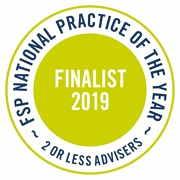Scammers are skilled at tricking you out of your money. Knowing the signs of a scam can help you identify when something doesn’t feel right.
Scamwatch, run by the National Anti-Scams Centre (NASC) says:
-
Stop – Don’t give money or personal information to anyone if unsure
-
Think – Ask yourself could the message or call be fake?
-
Protect – Act quickly if something feels wrong
If you think you’ve been scammed, act fast and see what to do if you’ve been scammed.
How to reduce the risk of financial scams
Here are some ways to help you to stay safe and reduce your risk of being scammed.
Protect your personal information
-
Use strong passwords.
-
Shred your personal documents.
-
Secure your devices with security software and use secure websites.
-
Monitor your bank transactions, credit card and online shopping accounts.
-
Check your credit report and your superannuation balance regularly.
-
Update privacy settings on your social accounts.
Do your own research
-
Check before you invest — Always check any investment opportunity to make sure it’s real, especially if approached through social media.
-
Ask questions — Be wary if someone avoids answering questions about the legitimacy of their offer.
-
Get advice — Get independent financial advice, speak to us before you invest.
Don’t rush into a quick decision
-
Don’t click — on any links in suspicious text messages or emails.
-
Be wary of unexpected contact — particularly if you’ve been contacted through social media. You don’t know who you’re dealing with.
-
Take your time — Don’t be pressured to make a quick decision with your money you may regret later.
-
Trust your instincts — If an offer sounds too good to be true, it probably is.
-
Ask someone — If you’re unsure about something, talk to someone you trust about it. They may see red flags that you don’t.
-
Check payments — Be suspicious if you’re asked to pay for something with gift cards or cryptocurrency.
How to spot a financial scam
Here are red flags to help you to identify a financial scam from something legitimate.
Remember, scammers are smart and know how to be convincing. Always be cautious when it comes to trusting someone with your money.
Signs of investment scams
An investment offer may be a scam if the person:
-
does not have an Australian financial services (AFS) licence or says they don’t need one
-
constantly contacts you (phone calls, texts or emails) and pressures you to make a quick decision
-
uses the name of a reputable organisation to gain credibility (for example, NASDAQ, Bloomberg)
-
has an investment prospectus that isn’t registered with ASIC
-
offers you very high investment returns
If you spot any of these signs, hang up the phone or delete the email. If you manage to record any of the scammer’s details, report them to ASIC.
Signs of crypto scams
If you’re investing in crypto, watch out for these warning signs:
-
Unexpected contact — someone you don’t know contacts you with investment advice or offers.
-
Recommended by someone familiar — a fake celebrity endorsement, online influencer, online acquaintance or romantic partner.
-
Pressure to take action — to move your crypto, use crypto to pay for something, or pay to access your crypto.
-
Something feels off — strange tokens appear in your wallet or a crypto investment offers ‘guaranteed high returns’.
Signs of superannuation scams
Scammers can try to get access to your superannuation. For example, offers to help you get your super early or help you ‘control’ it by opening a self-managed super fund (SMSF).
Signs of banking and credit scams
A bank will contact you if there are suspicious transactions on your account. But they will never ask you for sensitive information such as online banking passwords or codes.
Signs of identity theft
If your identity has been stolen, you may not realise for some time.
Check an investment is real
If you’re offered an opportunity to invest, check it’s legitimate by asking:
-
What is your name and what company do you represent?
-
Who owns your company?
-
Does your company have an AFS licence and what is the licence number?
-
What is your address?
-
Is your investing prospectus registered with ASIC?
Even if they can answer these questions, don’t rely on information given to you. Always verify any information through independent sources. To do your own research, check:
-
ASIC’s Offer Notice Board — If the company is offering shares or interests in a managed investment scheme, see if the company has lodged a disclosure document with ASIC.
-
Publicly listed phone directories — Check whether the address and contact details are correct.
-
ASIC Connect’s professional registers — Check the company has an AFS licence or Australian credit licence. Also check that the number given matches what is on ASIC’s registers.
-
This investor alert list – Check if the company website has been identified as a scam and removed.
-
International Organization of Securities Commission’s (IOSCO) investor alerts — Make sure the company is not named.
If you suspect a scam hang up the phone or do not respond to the email. Stop dealing with the person or delete and block them if it’s through social media.
Source:
Reproduced with the permission of ASIC’s MoneySmart Team. This article was originally published at https://moneysmart.gov.au/online-safety/protect-yourself-from-scams
Important note: This provides general information and hasn’t taken your circumstances into account. It’s important to consider your particular circumstances before deciding what’s right for you. Although the information is from sources considered reliable, we do not guarantee that it is accurate or complete. You should not rely upon it and should seek qualified advice before making any investment decision. Except where liability under any statute cannot be excluded, we do not accept any liability (whether under contract, tort or otherwise) for any resulting loss or damage of the reader or any other person. Past performance is not a reliable guide to future returns.
Important
Any information provided by the author detailed above is separate and external to our business and our Licensee. Neither our business nor our Licensee takes any responsibility for any action or any service provided by the author. Any links have been provided with permission for information purposes only and will take you to external websites, which are not connected to our company in any way. Note: Our company does not endorse and is not responsible for the accuracy of the contents/information contained within the linked site(s) accessible from this page.





